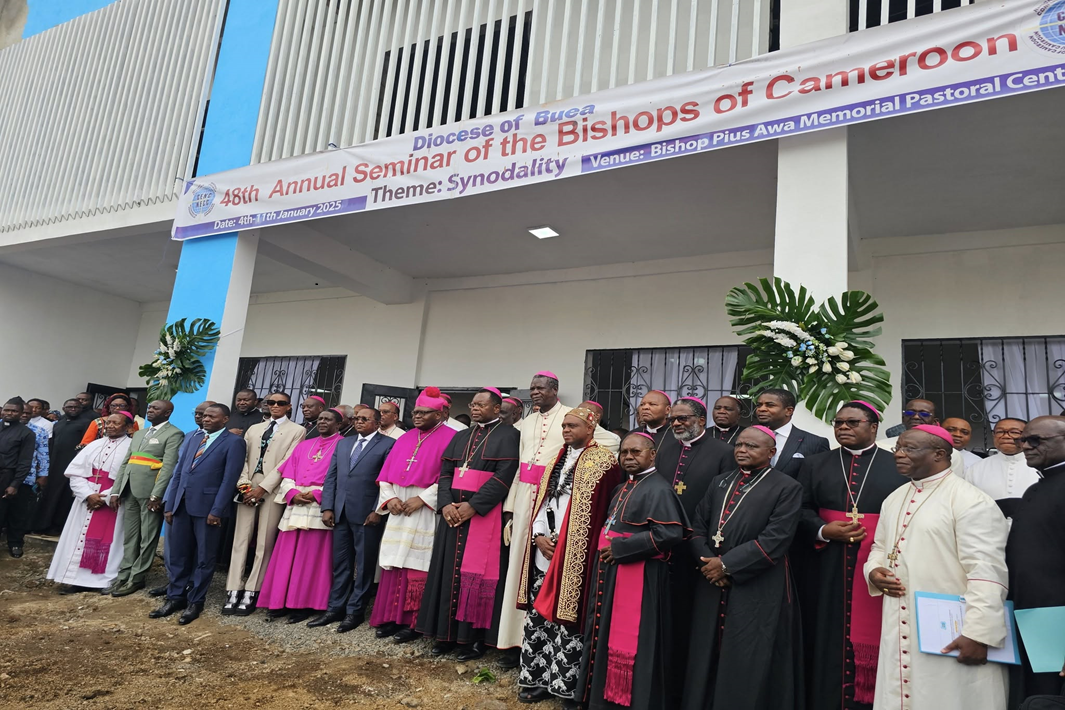By Paschal Norbert
YAOUNDÉ, APRIL 1, 2025 (CISA) – As Cameroon heads towards its 2025 presidential and regional elections, the country’s Catholic Bishops have issued a compelling call for citizens to actively participate in the electoral process, despite growing concerns over corruption, political instability, and electoral transparency.
In a pastoral letter addressed to all Cameroonians, the National Episcopal Conference of Cameroon (NECC) emphasized the importance of democracy and civic engagement. While some citizens have questioned the Catholic Church’s involvement in politics, the Bishops reiterated their duty to guide the faithful in making informed and ethical choices. They rejected claims that the Church should remain silent, arguing that religious leaders have a moral obligation to advocate for justice and good governance.
“Some of our fellow citizens find it surprising that the Catholic Church should take an interest in politics, for example by getting involved in democratic processes. They even complain that she is ‘interfering’ in areas that are not her spheres of influence,” the Bishops wrote, reaffirming that the Church and political institutions must remain independent but noted that democracy benefits from moral and ethical leadership.
The pastoral etter warns against voter apathy, citing systemic corruption and electoral fraud as significant obstacles to democracy. Many Cameroonians have expressed doubts about the legitimacy of candidates and the fairness of the process.
The Bishops acknowledged these concerns, writing, “Doubts about the legitimacy of the candidates are compounded by the problems most often decried at almost every presidential election in Cameroon: violence during campaigns, post-election violence triggered by disputes over the official results, fiddling with electoral registers, vote-buying, and, in some constituencies, destruction of ballot papers.”
Despite these challenges, the Church leaders insisted that non-participation would only reinforce the status quo. They urged citizens to view elections as an opportunity for change rather than a futile exercise.
They appealed, “We invite Catholic Christians and all Cameroonians of good will… to exercise their duty and right to vote instead of resigning themselves to indifference driven by despair, fear and prejudices.”
The Bishops also highlighted the flaws in Cameroon’s electoral system, calling for reforms to enhance transparency and fairness. They noted that while the country’s Constitution and 2012 Electoral Code provide a legal framework for elections, opposition parties and civil society organizations continue to raise concerns over a lack of justice in the process.
“Despite this legal framework, the opposition parties and civil society in our country continue to criticize the electoral process for its lack of transparency, justice and fairness. In addition to their various demands, they are constantly calling for the current Electoral Code to be revised,” noted the bishops.
They stressed the need for a code of good conduct that would establish behavioural standards for all political actors and ensure credible and peaceful elections.
The Bishops recognized the growing influence of media, particularly social media, in shaping public opinion. They cautioned against the spread of misinformation and hate speech, urging media professionals to adhere to ethical journalism standards.
“Information is among the principal instruments of democratic participation. Participation without an understanding of the situation of the political community, the facts and the proposed solutions to problems is unthinkable,” they said.
Furthermore, they warned against media concentration in the hands of a few individuals or groups, arguing that this endangers democracy: “A diversified media landscape is therefore an important prerequisite for the public to be able to obtain information about elections and electoral contests from a variety of reliable sources.”
In light of past election-related violence, the Bishops called for an end to political conflicts, particularly in Cameroon’s North-West and South-West regions, where insecurity has often hindered voter turnout. They urged all candidates and political parties to promote peace and respect the electoral process.
In their letter, the Bishops reaffirmed the Church’s commitment to accompanying the electoral process through its Episcopal Commission for Justice and Peace. They called for integrity, transparency, and fairness to ensure that the elections reflect the will of the Cameroonian people.
